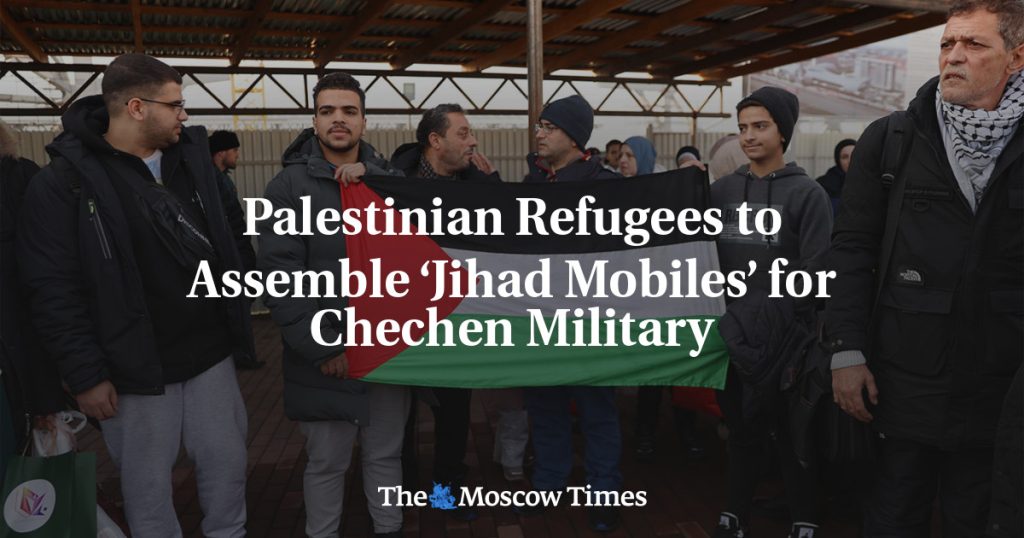Authorities in Chechnya, a republic in Russia’s North Caucasus region, are planning to train Palestinian refugees from Gaza to work at a factory that assembles assault vehicles used by Chechen fighters in Ukraine. These vehicles, known as “Jihad Mobiles,” are modeled after off-road vehicles used by Russian troops in Syria. About 200 Palestinian refugees who fled the Gaza Strip during the Israel-Hamas war in October 2023 have settled in Chechnya, with some already finding employment in medical institutions in the republic.
In an effort to provide employment opportunities for Palestinian refugees in Chechnya, senior regional cabinet officials have met with those who are currently unemployed and promised to offer them training at local engineering schools. The goal is to prepare these refugees for jobs at the Chechenavto plant where the assault vehicles are assembled. The training program is part of Chechen leader Ramzan Kadyrov’s initiative to assist the Palestinian refugees and help them integrate into Chechen society as full-fledged citizens, receiving wages and making retirement contributions like other residents.
Chechnya’s industry and energy minister, Adam Khakimov, expressed the government’s commitment to ensuring that the Palestinian refugees receive the necessary training and support to secure employment at the factory. This opportunity is a part of Kadyrov’s efforts to provide job opportunities for the refugees and address their needs as they settle in Chechnya. The region has seen an influx of Palestinian refugees following the conflict in Gaza, and the government is working to assist them in finding meaningful work and integrating into the community.
Kadyrov, a staunch ally of the Kremlin, has shown support for Palestine in response to the conflict with Israel, particularly in the wake of the brutal siege on Gaza. The Chechen leader has condemned the violence and expressed solidarity with the Palestinian people, which has led to initiatives to assist Palestinian refugees in Chechnya. By offering training programs and employment opportunities, Kadyrov aims to ensure that the refugees have a chance to rebuild their lives and contribute to the local economy.
The Palestinian refugees in Chechnya are expected to undergo training at engineering schools before transitioning to work at the Chechenavto plant where the “Jihad Mobiles” are assembled. This training will equip the refugees with the necessary skills to work in the factory and help them become fully integrated into Chechen society as productive citizens. By providing employment and support to the refugees, the Chechen government hopes to create a sense of stability and belonging for those who have been displaced by conflict in their home country.
Overall, the efforts to train and employ Palestinian refugees in Chechnya demonstrate a commitment to assisting vulnerable populations and addressing the challenges faced by those who have been displaced by conflict. By offering job opportunities and support to the refugees, the Chechen government is working to promote integration and provide a sense of security for those who have sought refuge in the region. Through these initiatives, Chechnya aims to not only assist the refugees in rebuilding their lives but also to strengthen the ties between the Palestinian community and the local population, fostering a sense of unity and cooperation.


